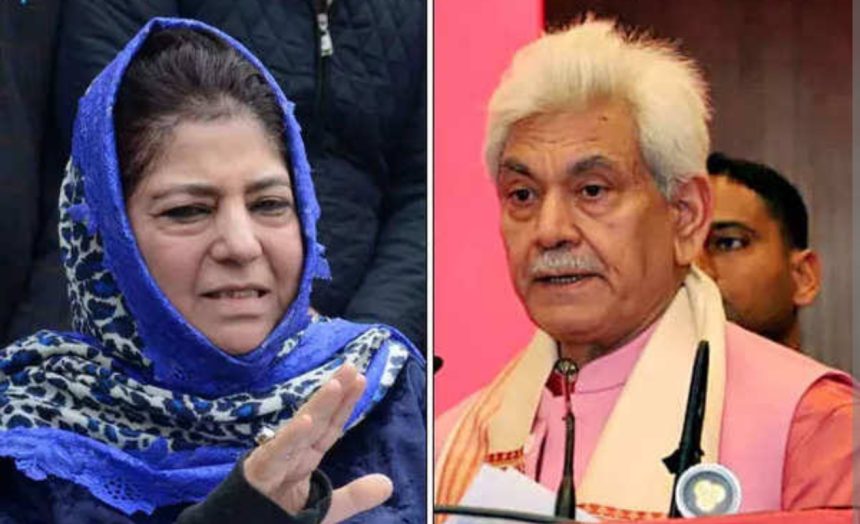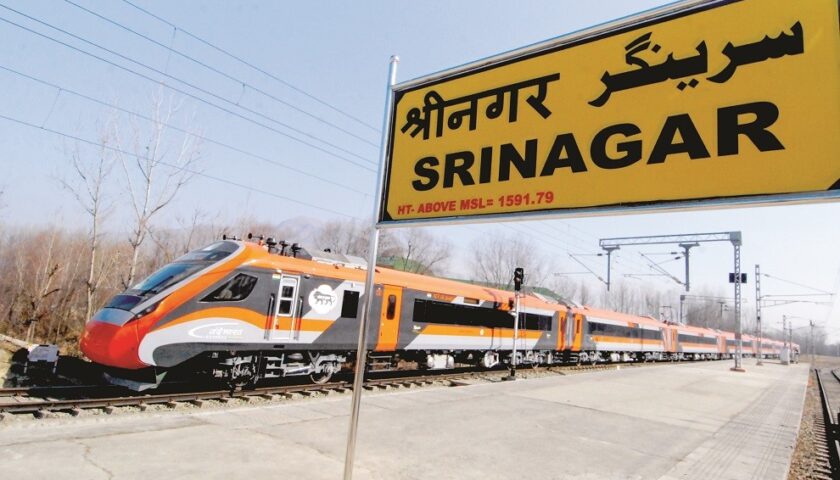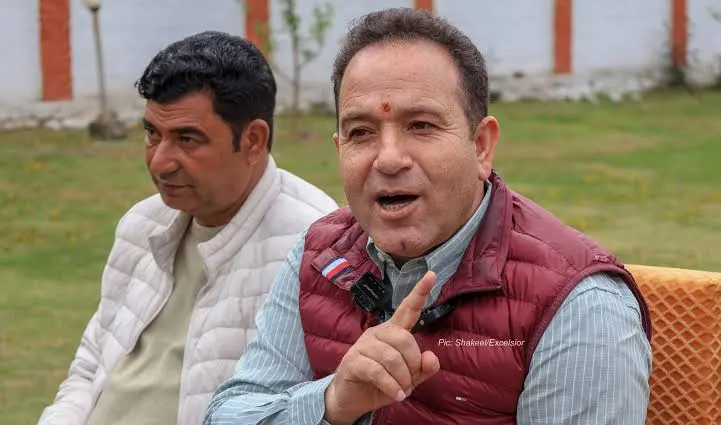An Unexpected Political Move
Srinagar 10 June 2025: Mehbooba Mufti, the former Chief Minister of Jammu and Kashmir and president of the Peoples Democratic Party (PDP), made headlines recently by meeting Lieutenant Governor Manoj Sinha — her first formal engagement with the Union-appointed head of the J&K administration since the abrogation of Article 370 in August 2019.
The meeting, while officially framed around the welfare of displaced Kashmiri Pandits, has kicked off intense speculation about possible realignments, evolving strategies, and the broader direction of J&K politics. Why now? Why the LG? And what does it mean for her party, for reconciliation efforts, and for the region’s political climate?
From Fierce Opposition to Diplomatic Dialogue
After the abrogation of Article 370 and bifurcation of J&K into Union Territories, Mehbooba Mufti emerged as one of the most vocal critics of the central government’s decision. She was detained for over a year and repeatedly refused to engage with the post-Article 370 administrative machinery, arguing that it lacked democratic legitimacy.
This meeting, therefore, marks a clear departure from that earlier stance.
It’s not just about a change in tone — it reflects a pragmatic political shift, one that recognizes the realities of power in the region, especially in the absence of a functioning legislative assembly.
The Kheer Bhawani Factor: Symbolism at Play
The timing of the meeting is crucial.
It took place just ahead of the Kheer Bhawani Mela, one of the most sacred festivals for Kashmiri Pandits, held at the Mata Kheer Bhawani Temple in Tulmulla, Ganderbal district. The temple is not just a spiritual site — it is a symbol of Kashmiri pluralism and shared heritage.
Mehbooba’s gesture, including the presentation of a roadmap for the dignified return of migrant Pandits, was likely intended to:
-
Signal reconciliation and healing.
-
Demonstrate leadership on a long-standing humanitarian and political issue.
-
Align herself with an inclusive vision of Kashmir’s future — beyond identity politics.
The Roadmap: What Mehbooba Proposed
According to sources in the PDP and LG’s office, Mehbooba submitted a comprehensive memorandum outlining several proposals:
-
Land Allotments for returning Pandits in secure zones across Kashmir Valley.
-
Dedicated Assembly Seats for Pandits under proposed electoral reforms.
-
Financial Support Packages, including housing, education aid, and livelihood guarantees.
-
Cultural and Religious Protections — including the restoration and upkeep of religious sites.
This was not a symbolic visit; it was substantive, with policy suggestions and actionable proposals.
Political Optics: A Calculated Shift?
This meeting may also signal Mehbooba’s recognition that real administrative power now resides with the Lieutenant Governor’s office, not elected MLAs or ministers — particularly in a region that has been under President’s Rule for over five years.
Possible motivations:
-
Political Relevance: With Assembly elections yet to be held, engaging with the LG may be the only viable channel for regional leaders to advocate for their constituents.
-
Softening of Stance: Mehbooba might be aiming to rebrand her image — from a confrontationist figure to a problem-solving stateswoman.
-
Electoral Calculation: This move may help expand PDP’s appeal among moderate and migrant Kashmiri Pandits and reestablish credibility.
Reactions: Rivals Cry Foul, Public Divided
Predictably, the meeting triggered sharp criticism from political opponents:
National Conference (NC):
-
Accused Mehbooba of political opportunism.
-
Questioned the timing, calling it a “PR stunt” ahead of elections.
-
Suggested it was an attempt to “appease Delhi” rather than stand with Kashmiri interests.
Apni Party & Congress:
-
Took a more measured stance, saying any step toward peace and reconciliation is welcome, but must be consistent, not opportunistic.
Public Response:
-
Mixed reactions on social media:
▪️ Some hailed the move as statesmanlike.
▪️ Others accused PDP of “selling out” its ideology.
Implications: Is This the Start of PDP’s Reset?
If this signals a broader political reset, what could it mean for the PDP and for Jammu & Kashmir?
01. PDP’s Reinvention?
-
Could be the first step in reclaiming political space in post-Article 370 Kashmir.
-
Positions Mehbooba as more pragmatic than ideological, a potentially useful shift in a Union-dominated power structure.
02. Pandit Return: Real Policy or Symbolic Tokenism?
-
If the administration acts on the PDP roadmap, it may reinvigorate reconciliation efforts.
-
However, if it remains on paper, the visit risks being labeled as symbolic and hollow.
03. Delhi’s Soft Engagement?
-
LG’s acceptance of the meeting suggests the Centre may be testing waters for soft engagement with previously critical regional players.
Political Chess: What Comes Next?
With J&K Assembly elections possibly on the horizon, every move is being closely watched and interpreted through a political lens. Some key questions arise:
-
Will Mehbooba continue this path of direct engagement with LG Sinha?
-
Will the roadmap be implemented?
-
Will the PDP adopt a softer tone on Article 370 going forward?
-
Is this part of a larger reconciliation narrative being planned ahead of elections?
Analysis: Pragmatism Over Protest?
From the outside, this seems like a strategic pivot — not a betrayal of principles, but a recognition that realpolitik demands dialogue. The meeting allowed Mehbooba to:
-
Regain narrative control.
-
Show initiative on sensitive issues.
-
Present herself as a voice of reason and responsibility in a polarized landscape.
For a party sidelined in recent years, this is a powerful way to reclaim relevance without compromising entirely on its past positions.
Bottom-Line: Symbolism Meets Substance
Mehbooba Mufti’s meeting with LG Manoj Sinha may or may not lead to immediate policy changes. But it has:
-
Broken an unspoken political taboo.
-
Shifted public and media focus.
-
Brought the Pandit issue back into mainstream discourse.
-
Repositioned PDP in the evolving chessboard of J&K politics.
Only time will tell if this is a genuine outreach or a calculated electoral gambit, but the move has certainly reignited interest in the PDP’s future and Kashmir’s political path.




